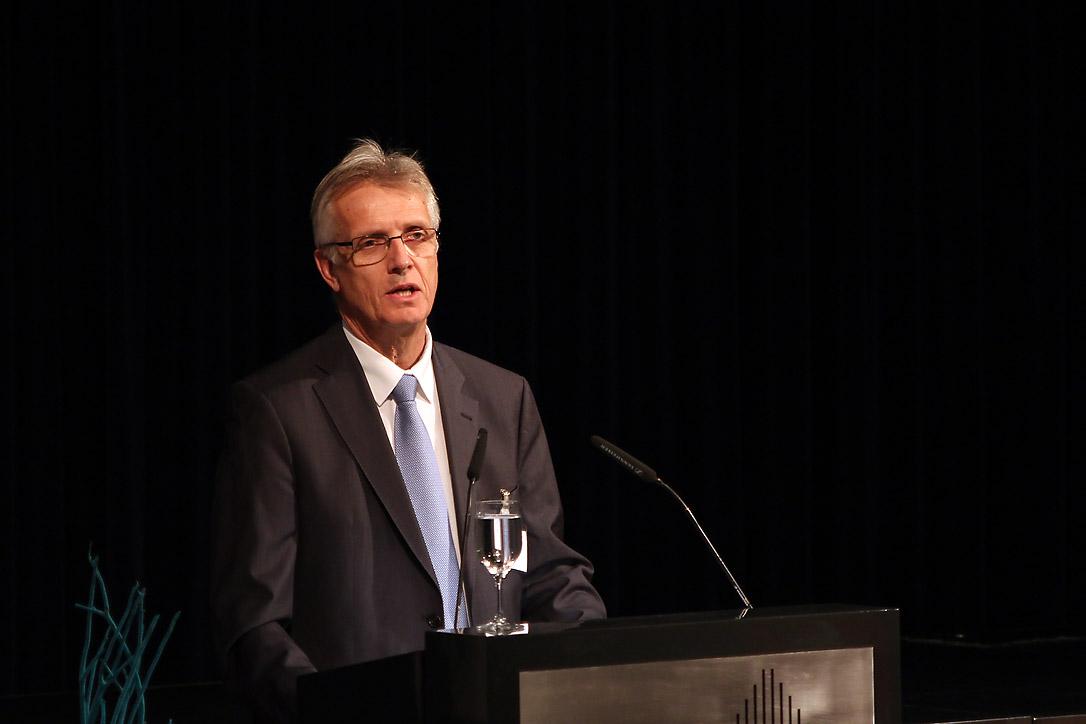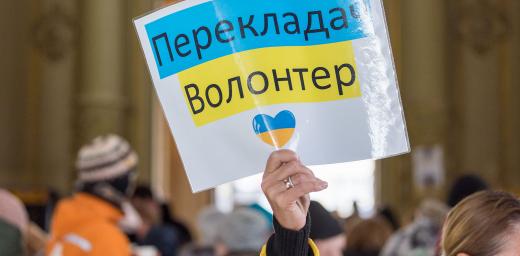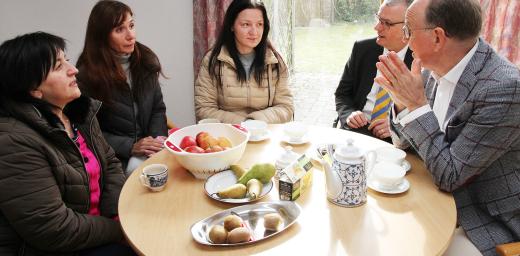Refugees lose many things but never their human rights

Rev. Dr Martin Junge, LWF General Secretary. Photo: LWF/F. Hübner
Martin Junge thanks Germany for bold stance during the refugee crisis in mid-2015
(LWI) – The Lutheran World Federation (LWF) General Secretary Rev. Dr Martin Junge has expressed his gratitude and respect to churches in Germany and the Federal Republic as a whole for their enormous engagement for refugees.
Referring to mid-2015, when Germany opened its borders to refugees he said, “The Federal Government sent a clear signal. It took its moral, humanitarian responsibility and ignored populist propaganda” he told parliamentarians and church representatives at an event hosted by the Confederation of Protestant Churches in Lower Saxony, 14 April, in Hanover, Germany.
Junge called church leaders to continue to act on their message of humanity and welcome. “You are needed, not just by refugees but also by people in your country who are seeking orientation in the present challenging situation.” He asserted that answers must be found to people’s questions and fears for their livelihoods when they see the refugee figures, whether these fears are justified or not. Otherwise currents of hate and violence would gain continued support.
You are needed, not just by refugees but also by people in your country who are seeking orientation in the present challenging situation.
Reinforcing borders is a short-sighted approach
In view of the migrants’ flows to Europe, Junge strongly advocated a uniform European policy. At the same time, he argued that relocating refugees outside the territory and reinforcing the external borders was not a solution. “Closing borders does not solve any problems. Keeping refugees out of Europe does not make them disappear.”
Junge, a Chilean pastor, appealed to participants in the gathering to follow developments carefully and to not allow a “loosening” of human rights and their instruments. He said his own experience of Chilean dictatorship made him highly sensitive to the danger of violating individual human rights. “Refugees must not be detained. Nor must refugees be returned to countries that are categorized as unsafe,” he emphasized.
He encouraged to “continue to hold to the message that refugees must be treated humanely. Hold fast to the attitude that people who have fled their homes have given up and lost a great deal, but not their human rights.”
In that same line, Junge referred to the importance to adhere to the Geneva Refugee Convention of 1951: “What applied in 1950 for Hungarians, Latvians and Germans […] must now apply in 2016 for Syrians, Eritreans and Iraqis.”
The LWF general secretary said he was strictly opposed to juxtaposing refugee assistance and long-term development cooperation. Referring to decisions of some governments in Europe, he called on them not to cut their Official Development Aid (ODA) in order to finance the response to refugees in their countries, because this would exacerbate the root causes of migration, conflict and violence.
Politicians also thank the churches
Greeting the gathering, the President of the Lower Saxony Parliament Bernd Busemann commended the commitment and important voice of the churches in the political discussion on refugees and migrants.
Bishop Ralf Meister of the Evangelical Lutheran Church of Hanover, who is also chairperson of the Confederation of Protestant Churches in Lower Saxony, promised that the churches would keep up their commitment. In addition to the Hanover church, the confederation includes the Evangelical Lutheran Churches in Brunswick, Oldenburg and Schaumburg-Lippe, and the Evangelical Reformed Church.





